Feminism
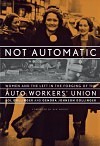
This story of the birth and infancy of the United Auto Workers, told by two participants, shows how the gains workers made were neither easy nor inevitable—not automatic—but required strategic and tactical sophistication as well as concerted action. | more…
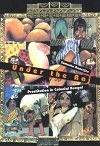
Under the Raj explores the world of the prostitute, seeking to understand the culture of the trade and its impact on society, in the changing reality of nineteenth century Bengal. Sumanta Banerjee outlines the class structure that emerged within the profession, examines popular perceptions of prostitution and analyzes the complex relationship between the newly educated Bengali bhadralok society and the prostitute community. Banerjee gives voice to the prostitutes themselves, from which we hear their songs, letters, and writings, collected and reproduced from both oral tradition and printed sources. | more…

This new edition updates a highly acclaimed work with an analysis of the most recent developments in welfare “reform” and welfare rights activism. Drawing on first-hand reports of women forced to leave welfare and other newly available data, Mimi Abramovitz documents the impact of this historic change in public policy on the lives of poor single mothers and their children. She punctures the highly publicized claims that equate successful reform with shrunken rolls, showing that if the reformers set out to improve the lives of women and children, something went dangerously awry. Abramovitz argues that welfare reform has penalized single motherhood; exposed poor women to the risks of hunger, homelessness, and male violence; swept them into low-paid jobs, and left many former recipients unable to make ends meet. | more…

This collection offers the best scholarly work emerging at the intersection of gender theory and Latin American studies. The essays analyze the gendered politics of state power, language, culture, history, social movements, human rights, and knowledge. Outstanding scholars and activists map the debates that have broken new and fertile ground in Latin American gender studies, criticizing short-comings and speculating on future directions. In their examination of everyday struggles over gender politics, the contributors illustrate the link between political action and conceptual debates. Innovative and challenging, this book will generate discussion in a wide range of fields. | more…
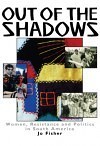
In Out of the Shadows, author Jo Fisher interviews women in Argentina, Chile, Uruguay, and Paraguay to show how they have moved into the vacuum left by the military’s destruction of the male-dominated left. Chapters describe how women have organised—in communal kitchens in Chile’s shantytowns, as trade unionists in Uruguay, peace activists in Paraguay, mothers of the disappeared and self-help groups in Argentina, as grassroots feminists in Chile—ending the isolation of home life. | more…
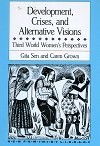
This book synthesizes and analyzes three decades of economic, political, and cultural policies and politics toward third world women. Focusing on the impact of the current global economic and political crises — debt, famine, militarization, and fundamentalism — the authors show how, through organization, poor women have begun to mobilize creative and effective development strategies to pull themselves and their families out of immiserating circumstances. | more…
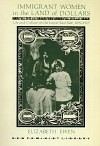
At the turn of the century, millions of European women set sail with their families for the United States. Behind them stood a world of peasant agriculture and small town life. Ahead lay the concrete metropolis, swept by the winds of industrial development. Immigrant Women in the Land of Dollars tells the story of the Jewish and Italian women who came to inhabit New York’s Lower East Side during this period of massive migration. By looking at two generations — mothers born in the Old World, and daughters born in the new — and making extensive use of oral histories, Elizabeth Ewen presents the compelling tale of a metamorphosis in life and in perception. | more…
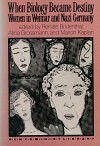
This collection of essays analyzes the experience of women in Weimar and Nazi Germany — the first a period of crisis and polarization between right and left, and the second a period in which the right triumphed. The history documented in this book provides us with a perspective from which to analyze our own time, for in the history of Weimar and Nazi Germany we see the issues surrounding women, family, and reproduction as powerful mobilizing forces for both right and left. | more…
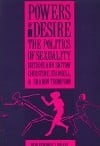
This provocative anthology brings together a diverse group of well-known feminist and gay writers, historians, and activists. They are concerned not only with current sexual issues — abortion, pornography, reproductive and gay rights — but they also raise a host of new issues and questions: How, and in what ways, is sexuality political? Is the struggle for sexual freedom a complement to other struggles for liberation, or will it detract from them? Has the sexual revolution diminished or enriched the lives of women? | more…

“This book is a must for those who would follow the Marxist-feminist argument. Most of the authors are developing their arguments within the general outline of Marxist theory, yet their work here exposes some of the tensions and conflicts within that same theory. This is certainly the stuff of dialectics!” — Contemporary Sociology: A Journal of Reviews | more…









